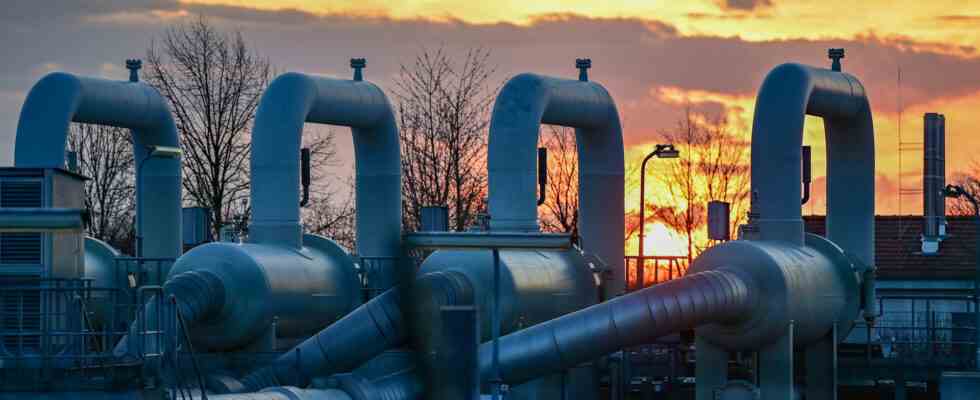Can Germany afford to stop supplying Russian gas? The Bundesbank is now positioning itself on this issue for the first time. The result of their calculation is clear.
Factory closures, unemployment, horror inflation: If no more Russian gas flows to Germany, that would have fatal consequences for the economy and consumer. At least that’s what she’s wearing federal government for a few weeks ahead. Especially Chancellor Olaf Scholz (SPD) and Economics Minister Robert Habeck justify that they are against a gas embargo.
The problem: A separate calculation, an economic case study for the gas stop scenario, could do that Ministry of Economy not present until the end. Instead, as criticized by numerous economists, the federal government seemed to be referring primarily to the prophecies of doom in the industry, which – qua natura – is against an end to gas supplies.
That should change now. On Friday, for the first time, a quasi-governmental body, the Bundesbank, presented a calculation in the event that Germany would refrain from importing all energy from Russia in the short term, i.e. coal and oil as well as gas. The result in brief: the German economy would indeed fall into a recession.
In the Corona year, the economy went down even more steeply
Instead of growth of around 3 percent, the German economy is likely to shrink by 2 percent. The monthly report published by the German central bank on Friday reads: “In the worsened crisis scenario, real gross domestic product (GDP) in the current year would fall by almost 2 percent compared to 2021.”
For comparison: In the Corona year 2020, the German economy contracted more than twice as much, at the end of the year there was a minus of 4.6 percent. However, at that time it was also a global pandemic that affected the entire global economy brought to a standstill, and not just about energy supplies from a single country.
All of this can be understood even better by looking at the recent past. At the end of 2021, before the Russian invasion of Ukraine, the Bundesbank had still expected economic output to increase by 4.2 percent in 2022.
Hardly possible to find substitute suppliers for gas
The question of how much an embargo would damage Germany had recently caused a heated argument among Germany’s leading economists. Roughly speaking, the guild split into two camps: those who did not consider the consequences of a gas embargo for the German economy to be too serious, and in some cases even supported it from a political point of view – and those who, like the federal government, feared dramatic consequences.
The Bundesbank is now positioned in the middle, with a slight bias towards those experts who warn of more severe effects. Since it would hardly be possible in the short term to completely compensate for supply shortfalls from Russia with increased imports from other producing countries, there are likely to be bottlenecks in the gas supply in particular.
In its scenario, the Bundesbank therefore assumes that the use of energy will be rationed. This probably means, among other things, the emergency plan for gas, as a result, first the industry and finally the private households would be turned off the then scarce gas.
A full embargo would result in economic losses of 165 billion euros this year. The German economy would also suffer from the consequences in the years that followed, wrote the economists at the Deutsche Bundesbank. The Federal Bankers estimate the absolute amount for 2023 and 2024 at a further 115 billion euros in losses per year. No calculations were made on the effects of possible energy rationing for these two years.
Disrupted supply chains make things difficult for companies
In principle, the Bundesbank pointed out that the model calculations are subject to considerable uncertainties and that future developments can “both overstate and understate”. What is certain, however, is that the central bank believes that the economic effects of the war in Ukraine will “considerably weaken the strong recovery that was actually planned.”
Among other things, disrupted supply chains, drastically increased energy prices and increased uncertainty weighed on companies and private households. The extent of the economic consequences of the war is still very uncertain and depends on its further progress.
The central bank expects economic output to roughly stagnate in the first quarter of the current year. Before the start of the Russian attack on Ukraine on February 24, the delivery bottlenecks probably decreased somewhat in the industry.
In addition, the construction industry benefited from the mild weather, the economists justified their assessment. At the end of last year, on the other hand, the fourth corona wave and the tightened protective measures against the spread of the pandemic halted the economic recovery. Gross domestic product shrank by 0.3 percent in the fourth quarter compared to the previous quarter.

